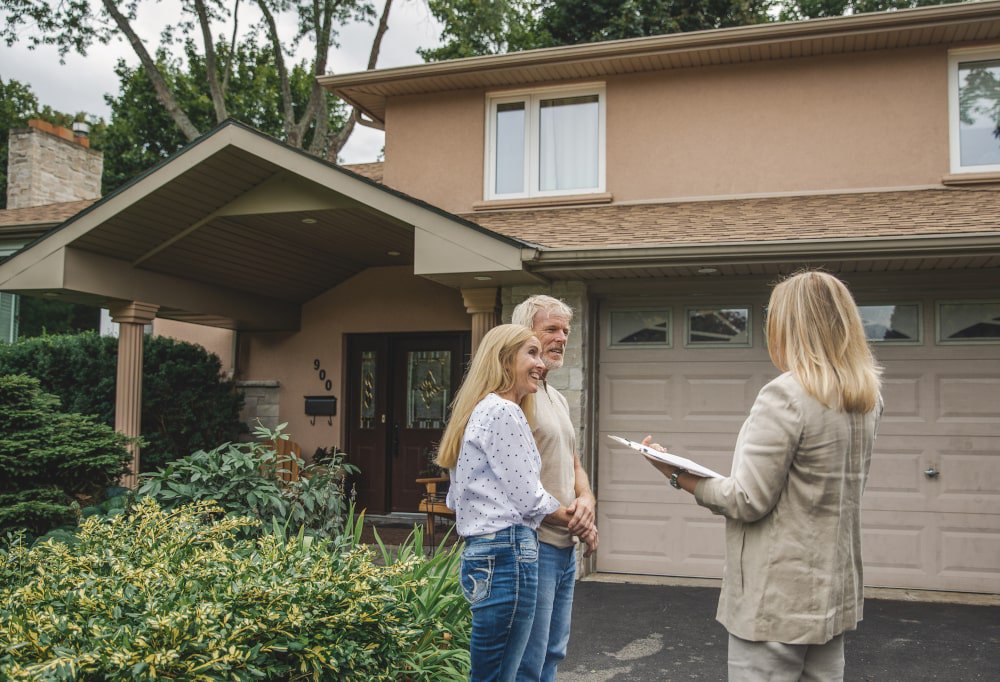Home Inspection Before Closing and Why You Need it

When buying a home, conducting a home inspection will be one of the most important things you do. If it is your first time getting your property inspected by a professional, it may be helpful to know what to expect. You may be wondering how much a home inspection costs, what it covers, and what to look for. The more informed you are going into the home inspection process, the higher your odds of success will be.
What is a Home Inspection and What Does It Cover?
A home inspection is a simple examination of a home’s current condition. The purpose of a home examination is to identify any problems with the home’s condition, structure, or functionality. Usually, home inspections are conducted by professional property inspectors hired by the homebuyer.
Inspectors can vary in their abilities, experience, and thoroughness, but a good inspector should examine key components and features of the home before producing a report covering their findings. You can expect an inspection to last two to three hours, and it is highly recommended that you are present for its duration. It will be much easier for you to understand the problems being communicated to you by the inspector if you can see them first-hand.
What Should a Good Home Inspection Cover?
While every home inspection is unique, here is a list of essentials that most property inspection professionals should be checking for:
- Ceilings should be level and free of stains/cracks.
- Exterior walls and surfaces should have a solid coat of paint that is not peeling, and be free of major stains and/or damaged siding. If the bottoms of the walls are very close to soil, this may serve as a tip-off for a potential termite investigation.
- If the home has a basement , it should be properly insulated and show no signs of water damage or foundational weakness.
- The yard should be checked for proper drainage to ensure water cannot make its way back into the house and cause damage.
- The roof should be stable, functional, and have undamaged shingles. The vents and gutters should be operational, and the chimney should show no signs of damage.
- Any windows should be properly aligned with drip caps installed. Stormproof windows are preferable.
- Doors and accompanying trim should be free of rot or decay
- The bathroom should have fully functional fixtures (sink, toilet, bath, etc.) and be equipped with a working exhaust fan.
- The attic should be properly ventilated and show no signs of leaking or water damage.
- All circuit breakers and electrical system grounding should be up-to-code. Outlets should be functional.
- The garage should rest on a solid foundation, have a functional garage opener, and be fitted with an up-to-code electrical system and outlets. The ceiling, walls, and floors should not be damaged. If the home’s water heater is in the garage, it must be installed high enough off the ground to minimize explosion risk from gasoline fumes mingling with the heater's flame.
- Smoke detectors should be functional and present in all required locations.
- There should be functional running water within the home. Water temperature should be adequate and controllable. There should not be any damaged or leaking pipes.
- The kitchen should have functional appliances (stove, fridge, dishwasher, etc.) and be adequately insulated.
- All heating and cooling units should be operational and free of damage.
What Does a Home Inspection NOT Cover?
Unfortunately, a home inspection is a relatively surface-level search. Because these inspections usually cover easily visible problems, deeper-rooted issues may not be addressed. For example, if the foundation of your home is damaged (below your flooring), a property inspection professional may not be able to identify that.
Home inspections will not look inside walls, the inside of pipes, inside chimneys, inside sewer lines, and/or behind electrical panels. They also will not cover termite damage checks, mold testing, and/or asbestos checks. Some home inspectors do offer these services as an add-on fee, but they are not required to do so.
If your property inspector suspects a problem, they usually will not give you a detailed recommendation themselves. Most inspectors carry a list of professionals they can refer you to for a variety of specific issues. Consulting these experts will however incur you some additional fees.
Why You Need a Home Inspection Before Closing on Your Home
Conducting a home inspection allows you to identify major problems with the property before you close a deal. Addressing significant issues like an unstable roof or a cracked foundation can cost you more than you bargained for, so it is important that this responsibility does not fall on you, the homebuyer.
Many sellers even allow you to add home inspections as a contingency in your contract. If the property you are looking to buy fails the home inspection, you can usually walk away without paying deposit fees. You can even take things a step further and negotiate the payment of repair costs from the seller’s end, or adjust the sale price of the home to deduct the repairs you will need to pay for.
Home inspection reports can also serve as a great resource for first-time buyers. The report will detail which items need repair and which items need replacement. A good report should also outline which items passed inspection but should still be monitored closely in the coming years.
How to Conduct Your Home Inspection
During the Home Inspection
The first step to conducting a successful home inspection is choosing the right home inspector. It may be tempting to hire the first inspector you come across, but putting in some research can make a huge difference. Look into the experience, training, qualifications, and technical skills of different candidates to determine the right fit for you and your needs.
Once you find an inspector, ask them if they belong to the Canadian Association of Home and Property Inspectors (CAHPI) or other similar groups. If your inspector is part of an industry organization, they are bound to specific codes and standards that can serve as a guarantee of their competency and expertise.
On the day of the home inspection, accompany the inspector on their tour of the property. Ask your inspector what is, and is not, covered in their assessment. Keep an eye out for defects or damage and photograph anything that needs repair.
After the Home Inspection
After the home inspection is completed, some violations will require mandatory repairs. These may include safety issues, structural defects, and/or building code violations. As a homebuyer, you will have several options for how to proceed.
If you include an inspection contingency in your contract with the seller, you have the option to walk away from the sale if you find the damage to be too extensive. On the other hand, you can also decide to move forward with the sale but demand repairs from the seller (if part of your contract) or pay them out of pocket.
The Final Walkthrough
The final walkthrough is a final look at the property that occurs 24 hours before the closing of the sale. It is not the same thing as a home inspection, nor is it an appropriate time for negotiations. The goal of the final walkthrough is to ensure that the property you are buying is the same condition you agreed to buy it in. Any agreed-upon repairs should already have been made and the property should be clear of garbage and debris.
When conducting a final walkthrough, try out all the light fixtures, test out appliances, run water from the sinks, check the garage door openers, flush the toilets, inspect the walls, ceilings, and floors, run the heating and cooling units, check doors, and try out all the windows.
If the property does not meet the agreed-upon conditions during the final walkthrough, you may be able to walk away from the purchase. Make sure to bring a camera with you to record evidence of any defects, damage, or unfulfilled contract agreements.
The home inspection process, while important, can be challenging. If you are a first-time home-buyer or are simply looking for extra support. You may want to consider working with a professional mortgage broker. A broker can help you negotiate any necessary repairs or repair reimbursements with the sellers, for example, saving you a lot of trouble.
If you are looking for expert advice tailored to your individual needs, schedule a free consultation with a trusted Clover Mortgage broker today!





